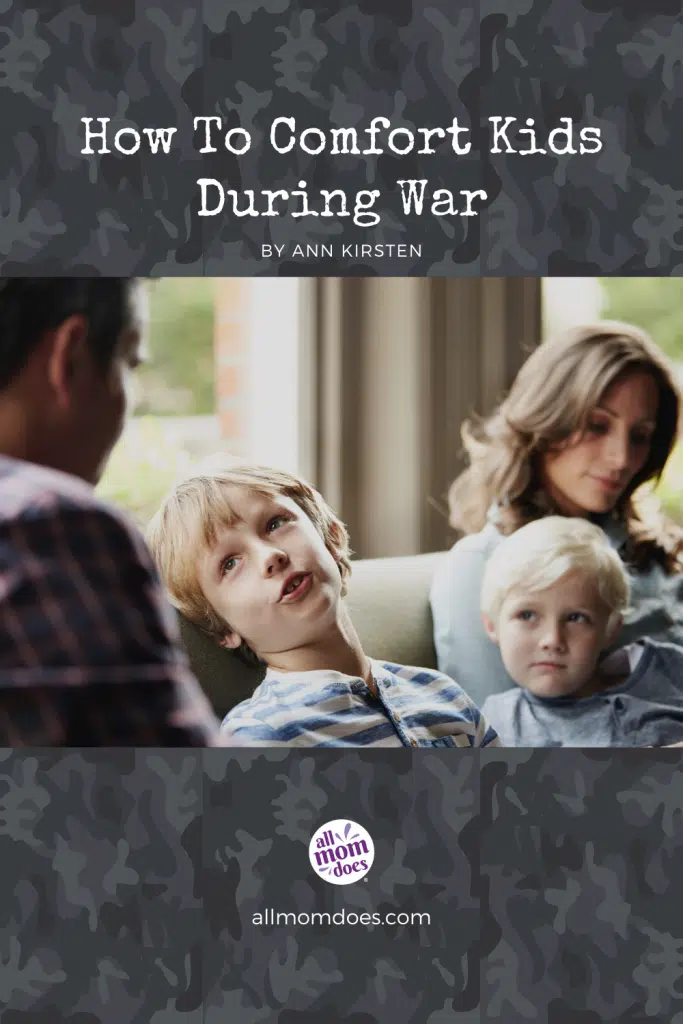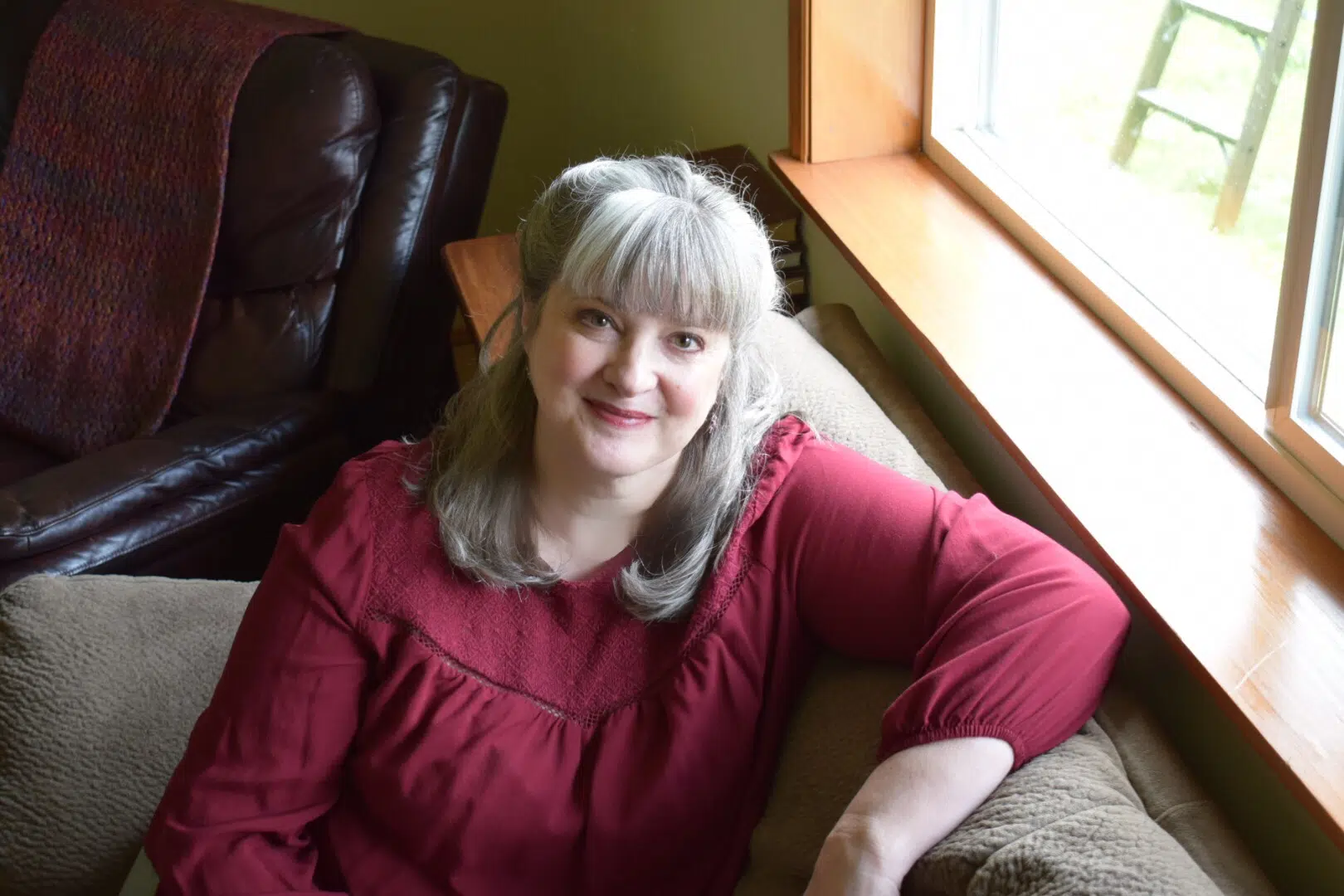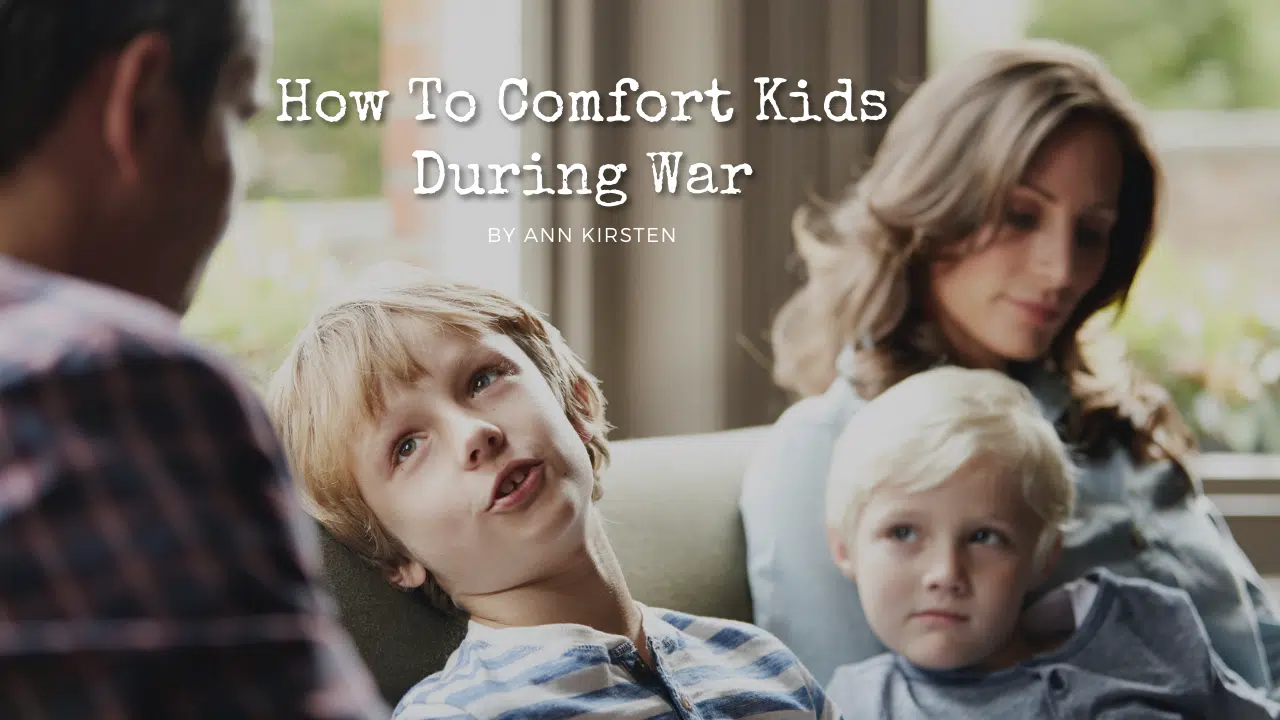I know most of us are struggling to process all the horrible stories coming out of Israel. I, for one, am having trouble sleeping or caring about the mundane tasks that fill a “normal” day.
How much more then, are our children suffering?
I dove into the tips that child psychologists are giving on how to help kids deal with the atrocities committed this last week. Here’s what they said:
• Protect young children. There is no reason to expose young kids to this war. Turn off the TV news and turn off your phone when they are around. Also, don’t have conversations in front of young ones that would disturb them. This is hard, as we are trying to process our own emotions, but important for our young ones.
• Emotional scars are hard to erase. Once a child is exposed to something, the damage is done. It’s very hard to get scary or disturbing images out of a child’s mind. This goes along with the first tip: Stop kids from seeing unsettling things BEFORE the damage is done.
• Delete social media apps. For older kids, the experts recommend deleting media apps that could offer up pictures and stories that you haven’t vetted first. I’ve personally seen people post on Facebook and Instagram about the atrocities. I imagine they are upset themselves and don’t know how to process their own grief, but “Uncle Jim’s” post could traumatize a child. Tell your kids that this is a temporary move to keep them safe.
• Let your children call the shots. Let your kids decide where and when they want to talk about the war. Carpooling and dinnertime are the perfect times to be ready for conversations. Keep the dialog going by asking open-ended questions, like: “How do you feel about that?” “Do you think that’s true?” Let them talk as much as they’d like and don’t be too quick to jump in and control the conversation.
• Ignorance is bliss. Maybe your kids haven’t been exposed to any news about the war. Good! Don’t force the issue if they’re not ready. I find myself hiding from a lot of the news because I just cannot handle it. Trust your kids to know how much they are ready to deal with.
• Watch for signs of discomfort in your kids. Have their sleep habits changed? Are they acting angrier, sadder, or even sillier than usual? They may even try and take on a peacemaker role as they pick up on the stress the adults around them are exhibiting. These can all be ways children show that they are stressed. They do not always have the ability to verbalize the emotional effects of what they’ve seen and heard.
• Calm down. If you have older kids and you sense the need for a discussion, make sure you’re calm first. This is a hard one as emotions run high during times like these. We feel things so deeply and it’s hard to turn those emotions off, but your “zeal” can be misinterpreted by kids and cause them even more stress. Children often feel responsible for their parents’ moods. Remind them that your stress has nothing to do with them.
• Keep the house peaceful. I hear moms everywhere laughing at this tip! But, this is an important time to light those candles, tidy a room, play soft music, and just do whatever you can to create some peace in this awful time.
• Give kids a creative outlet. Young children can draw pictures of what they think peace looks like. Older kids can raise money or supplies for relief organizations. This gives them a way to process their emotions. Another great idea is to look up Bible verses about comfort. Print them out and tape them on mirrors and doors.

GettyImages | Roman Mykhalchuk
I hope these tips help you as we all grieve during this dark time.
I leave you with this excerpt from The Hiding Place by Corrie Ten Boom.
Often times I would use the trip home to bring up things that were troubling me, since anything I asked at home was promptly answered by the aunts…And so seated next to my father in the train compartment, I suddenly asked, “Father, what is sexsin?”
He turned to look at me, as he always did when answering a question, but to my surprise he said nothing. At last he stood up, lifted his traveling case off the floor and set it on the floor.
Will you carry it off the train, Corrie?” he said.
I stood up and tugged at it. It was crammed with the watches and spare parts he had purchased that morning.
“It’s too heavy,” I said.
“Yes,” he said, “and it would be a pretty poor father who would ask his little girl to carry such a load. It’s the same way, Corrie, with knowledge. Some knowledge is too heavy for children. When you are older and stronger, you can bear it. For now you must trust me to carry it for you.”
PIN THIS!

 Read more of Ann’s contributions to AllMomDoes here.
Read more of Ann’s contributions to AllMomDoes here.












